Editorial

Hello, Excipients Insight readers,
As the first quarter of 2018 comes to a close, I’m glad to report that while we have set in place our plans for this year, many activities are ongoing. After our annual event in Bordeaux, we’ve had our first ‘outing’ to present the association at Europe’s First Making Pharmaceuticals event in Brussels earlier this month. IPEC Europe contributed to the speaker programme through Dr Liz Meehan and Astrid Stockrahm-Uhling, to whom we offer our thanks for spreading the word on excipient developments. We also had a stand at the exhibition which is a great opportunity to meet industry colleagues and the pharmaceutical press. This conference is already well-established in the UK and is being held on 24-25 April at the Ricoh Arena in Coventry. IPEC Europe will be there both as part of the exhibition and we will have three presenters. So if you missed us in Brussels, try to catch up with us there - registration is free. As I mention often, the possibility to have face-to-face interactions with our members, or indeed anyone with an interest in excipients, is always a privilege and is a great way to keep in touch with how we can keep moving our association forward.
And of course, the regulatory world always keeps us busy! There are several features in this edition which I’d like to mention. It seems there is always something to report from China and this month is no exception. The restructuring of the drug agency in China involves separating food from the drugs division. While our colleagues at IPEC China think this will have little impact on drug regulatory processes themselves, it is hoped that a period of stability can be expected. However, we do closely monitor China as it is such a dynamic country and we will continue to report happenings, as and when they occur.
In this issue you will find an article on the new guide issued on GXP data integrity issued by the UK’s MHRA. This is still one of the most talked about subjects and it remains one of the IPEC Federation’s priorities to develop a position paper on this topic. We very much hope that this will help to inform our audience as to what are reasonable expectations for data integrity in the excipient ’world’. One of our main objectives continues to be that we must ensure that excipients and their unique nature are fully considered when viewed relative to new expectations. I am sure we will be coming back to this topic many times throughout the year.
And finally, I’d like to ask for your help. As we try to re-establish our objectives related to compendial review and harmonisation, to inform a meeting which will be held in April, your assistance in completing this survey will help us greatly in determining our strategy for the future. We repeatedly hear that harmonisation is important to IPEC so here is your - or a colleague's - chance to let us know. We look forward to hearing from you!
Until next time,
Frithjof Holtz
IPEC Europe chair
IPEC Federation and PDA forge risk assessment alliance
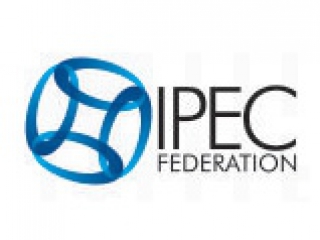
IPEC Federation is pleased to announce its first joint initiative with the Parenteral Drug Association (PDA).
Both associations signed a memorandum of understanding to collaborate on the development of a joint technical report on excipient GMP risk assessment in response to input from their respective memberships.
In March 2016 IPEC Europe published an “how-to” document to help pharmaceutical manufacturers comply with the European Commission Guidelines on risk assessment for excipients (2015/C 95/02).
In May 2017 a joint IPEC-Americas and IPEC Europe Guide on risk assessment for excipient manufacturers followed. This guide provides excipient suppliers with an overview of risk assessment tools, and resources that they can use, when conducting risk assessments required by both NSF/IPEC/ANSI 3631 and EXCiPACT excipient GMP standards.
Both PDA and IPEC Federation believe that presenting a common approach to the legal, regulatory and related issues concerning excipients is best presented as “one voice”, and so this joint initiative will deliver one technical document addressing the complex challenges of implementing risk assessment in this context. IPEC Federation sees much benefit in this collaboration bringing in IPEC’s excipient expertise from one side, and the drug product manufacturer perspectives through PDA.
For more information: Contact the IPEC Federation Secretariat
Email: info@ipec-federation.org
APV/IPEC Europe Excipient Conference 2018

A reminder to mark your calendars for the APV/IPEC Europe Excipient Conference 2018, which this year will be held in Cologne, Germany, on 18-19 September.
The annual update on regulatory and technological developments affecting pharmaceutical excipients will this year include three parallel workshops to provide practical, hands-on insight and discussion on regulatory topics, with a view to IPEC Guidelines providing tools to achieve compliance. These workshops will focus on implementation of GMP in an excipient manufacturing site, supplier qualification and auditing, as well as analytical data and certificates of analysis provided by suppliers of excipients.
Beyond that the regulatory session will highlight compendial topics of EDQM and USP. Challenges relating to the control of particulate contamination in excipients and requirements for excipients in parenteral applications will be presented and discussed by industry experts from pharma industry.
The technical and scientific part of the conference will deal with the importance of excipient on drug bioavailability. Low bioavailability is most common with oral dosage forms of poorly water-soluble, slowly absorbed drugs. Lipid based drug delivery system will be presented and can be an approach to overcome low bioavailability.
The way of drug release from modified-release (MR) dosage forms is intentionally different from that of a immediate-release drug formulation to produce a desired therapeutic purpose or improved patient compliance. Here a method to predict the modified release performance of drugs will be discussed.
Molecules used as active drug substances can be categorised into two classes – small and large molecules. Small, chemically synthesised molecules are the conventional active substances and still constitute over 90 percent of the drugs available on the market today. Contrary to small molecules, large molecules are complex and often consist of heterogeneous mixtures and they are becoming increasingly important. The role of excipients in small/large molecule drug formulation will be highlighted.
New scientific findings in the molecular processes of life are advancing knowledge of health and disease. The objective of individualized medicine is to make such knowledge useful for individually tailored prevention, diagnosis and treatment. As new drugs are elaborated that have differential effects within populations, there is also a need to consider new manufacturing methods. The requirements of excipients for individualised medicines and continuous manufacturing processes will be emphasised.
Last but not least networking and exchange of information is a key feature of the event and table-top exhibitions aligned to the conference will encourage communication between suppliers and users.
For more information, contact apv@apv-mainz.de
Job opportunity - Communications Assistant

IPEC Europe is looking for a Communication Assistant to support communication strategy and internal/external events activities. A one-year contract with possibility for a long-term contract thereafter is being offered.
Job Description:
- Support the Executive Manager and/or Senior Advisor with communication activities;
- Contribute in developing and implementing new communication activities and projects;
- Support web redesign and maintenance including analytics;
- Set up/design and maintain an event registration website for annual event and webinars;
- Coordinate the organisation of the annual event and support participation in external events;
- Define strategy to promote IPEC Europe events and projects;
- Update and produce content for IPEC Europe social media pages and newsletter;
- Prepare press releases and/or news alerts as instructed by Executive Manager and/or Senior Advisor;
- Report to the Executive Manager;
- Varied administrative duties as required.
Profile:
- Masters degree in communication or equivalent experience;
- At least one first professional experience in a similar position;
- Fluent in English (native speaker level) and proficient in French, other languages an asset;
- Outstanding writing skills in English;
- Highly computer literate: MS Office suite; web content management system (CMS), social media;
- Operational knowledge of design, video editing tools and basic knowledge of publishing software are an asset;
- Self-starter with ability to work independently and as part of a team;
- Detail-oriented;
- Ability to synthesise and translate complex issues into clear and concise messages;
- Willing to work in a small but dynamic structure.
IPEC offers:
- One-year full-time contract (38h per week); with the possibility of long term contract after one year;
- Lunch vouchers, pension scheme, hospitalisation insurance, and contribution to transport costs;
- Opportunity to initiate projects and be pro-active;
- Develop experience in digital communications, social media;
- Practical knowledge on running a member-based association in the pharma excipient sector.
How to apply:
Send a CV and a one-page cover letter (PDF format) in English to job@ipec-europe.org at the latest by 30 April 2018;
Email subject should read “Application: Communication Assistant”;
Starting date: as soon as possible;
Legal eligibility to work in the EU is a must;
Only applications providing the information as requested will be taken into consideration;
Only selected candidates will be contacted and invited for an interview;
IPEC Europe is an equal opportunity employer, which supports diversity and does not discriminate on the basis of race, colour, religion, ethnicity, nationality, gender, age, disability or sexual orientation.
Save the data: IPEC Europe webinar on 26 April

IPEC Europe’s next webinar – on the topic of pharmaceutical excipient stability testing and the information that may be disclosed to users and regulators – will be held on 16 April, 15:00-15:45 CET, and will be presented by Ms Tanja Natterer, Aug. Hedinger GmbH.
Topics:
- Requirements of 'The IPEC Excipient Stability Program Guide (2010)'
- Challenges for stability testing of excipients
- Practical approach – Design of an excipient stability testing program
- Discussion
To register click here.
IPEC Europe calendar

| Group |
Q2 2018 |
| IPEC Europe Board |
14 June |
| GDP Committee |
24-25 April, Manchester |
| Pharmacopoeial Review & Harmonisation |
April (TBC) |
| Quality/Regulatory Affairs |
19 April |
|
Revised EU guideline on excipient labelling is adopted
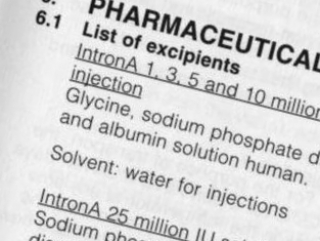
The European Commission issued a new guideline this month for marketing authorization holders (MAHs), giving a list of excipients that should be included on a medicine’s label and the information for them that must appear on the package leaflet.
The final version of the labelling guideline – for which IPEC Europe submitted comments during the revision process – can be viewed on the Commission website here. The EC notes that it does not apply to excipients when they are used as active substances.
According to Directive 2001/83/EC, all excipients in parenteral, ocular and topical medicinal products must appear on the labelling (outer package, or if no outer package on the immediate packaging). It also states that all excipients must be stated on the package leaflet by name.
MHRA's GXP data integrity guide published

The UK Medicines & Healthcare products Regulatory Agency (MHRA) has published a new GXP Data Integrity Guidance and Definitions document after a consultation process that included more than 1,300 comments received from industry.
The new document – which covers Good Clinical Practice, Good Distribution Practice, Good Laboratory Practice, Good Manufacturing Practice and Good Pharmacovigilance Practice – has been drawn up to take into account changes in the way regulatory data is generated, says the agency, such as “the increasing use of electronic data capture, automation of systems and use of remote technologies; and the increased complexity of supply chains and ways of working, for example, via third party service providers.”
According to an MHRA blog post authored by Tracy Moore, the MHRA’s senior GMDP inspector and GMDP operations manager, the GXP data integrity guidance has a high degree of alignment with documents published by other regulators such as PIC/S, WHO, OECD (guidance and advisory documents on GLP) and EMA.
“It is designed to facilitate compliance through education, whilst clarifying the MHRA’s position on data integrity and the minimum expectation to achieve compliance,” she said.
MEPs back Amsterdam for EMA
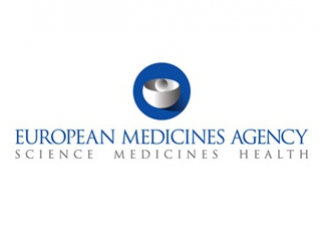
The law enacting the European Medicines Agency’s relocation from London to Amsterdam, due to Brexit, was approved by MEPs earlier this month.
The MEPs did however press the European Commission and the Dutch authorities to deliver the new facilities on time, so as to ensure a smooth transition for the agency and let it move to its temporary location no later than 1 January 2019 and to its new permanent headquarters no later than 16 November 2019.
Lead MEP Giovanni La Via (EPP, IT) said “We are concerned about the risk of delay in the construction of the new Vivaldi building in Amsterdam, as this could cause a deterioration of the agency’s workflow, which is precisely what we want to avoid.”
Earlier this year Giuseppe Sala, the mayor of Milan which lost out to Amsterdam at the final hurdle in the EMA relocation bidding process, said that Italy would lodge an appeal against the decision on the grounds Amsterdam did not have an appropriate temporary building ready to house it and concerns that there may be delays to the construction of the permanent facility.
La Via, who was part of a delegation from the EP to Amsterdam last month to look at the temporary accommodation, said: “We added conditions to the legislative text, in order to highlight the delivery deadlines to be respected and to set an obligation to report every three months on the state of play of the building’s adjustments and construction, by the Commission and Dutch authorities.”
The resolution was passed by 507 votes to 112, with 37 abstentions. MEPs will now start informal three-way (‘trilogue’) negotiations with the Council Presidency and Commission in order to strike a first-reading agreement on the new EMA seat.
“Member states should not expect the European Parliament just to rubber-stamp their decisions,” said La Via. “We regret that its role of co-legislator was not respected, and that is why we want this decision to be taken to a trilogue, under the co-decision procedure”.
Life sciences industry welcomes Brexit transition deal, with reservations

The UK pharma industry has responded with relief to the news that the UK and EU have agreed most elements of the transition period post-Brexit, and the negotiation guidelines for the next stage of the process.
The chief executive of the BioIndustry Association (BIA), Steve Bates, said that both sides had negotiated “pragmatically” for a positive outcome for patients on both sides of the channel.
“The life sciences sector has repeatedly called for a transition period to enable companies to adapt to the significant challenges posed by a Brexit in March 2019,” he continued. “We will now be working closely with government and industry stakeholders to understand the detail of the agreement and how it applies to our sector and medicines.”
The BIA is however concerned that the published European Council negotiating guidelines for phase two does not make medicines regulation a priority, a view that is also voiced by Association of the British Pharmaceutical Industry (ABPI) CEO Mike Thompson.
“As the transition agreement states the UK will play a limited role in the European Medicines Agency, we need to be sure that does not rule out close longer-term collaboration,” he said, adding that the pharma industry’s priorities of phase two are regulatory alignment, free and frictionless trade, access to European funding and access to skilled talent.
“As the next phase of talks begin, we will continue to make the case that the best way to safeguard patient safety and protect public health is for the UK and the EU to continue to cooperate on the regulation, trade and supply of medicines,” said Thompson.
GlaxoSmithKline CEO Emma Walmsley also welcomed the breakthrough on transition talks, telling the BBC that the company “certainly welcomes this pragmatic approach to transition” but adding that it is also looking for “more precision on the details of the end-stage of the relationship.”
She told the BBC that maintaining alignment with the EMA from 2021 onwards – after the two-year transition period – is of paramount importance if the UK is to remain a major market within Europe.
EU-US FDA mutual recognition of inspections expanded

1 March marked the beginning of mutual recognition of inspections of manufacturing sites for human medicines between the US and four new Member States of the European Union – Czech Republic, Greece, Hungary and Romania.
This follows on from the start of the operation phase of the mutual recognition agreement (MRA), which got underway on 1 November last year between the US and eight other EU countries (Austria, Croatia, France, Italy, Malta, Spain, Sweden, and the UK). Plans for the agreement to be operational in all EU member states by 15 July 2019 remain on track, according to the EMA.
According to the EMA the MRA “strengthens reliance upon each other’s inspection expertise and resources” and brings “mutual benefits” including:
- The ability to focus inspection resources on other parts of the world where active pharmaceutical ingredients and medicines for the EU or US markets are manufactured;
- Prioritizing inspections of medicines manufacturing sites for higher risk cases;
- Reassuring patients that they can rely on the quality, safety and efficacy of all medicines, no matter where they have been manufactured;
- Improving the ability to identify and address problems at manufacturing sites before they become a public health risk; and
- Reducing the administrative burdens and costs facing pharmaceutical manufacturers, including smaller producers.
China shakes up its regulatory structure
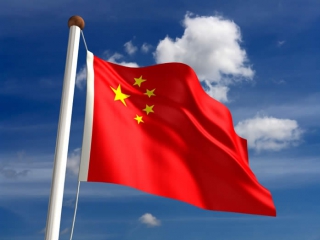
The regulatory environment for pharmaceuticals in China is heading for another shake-up thanks to a restructuring of the five-year-old China Food and Drug Administration (CFDA).
A report in the FiercePharma industry newsletter, citing comments made at the Chinese State Council annual conference, says that the CFDA will merge into a bigger national body that will also focus on business registration, quality control, pricing and anti-monopoly efforts. It says drug regulation will be separated from food regulation and will operate as a “second-tier bureau” underneath the overarching agency.
The structure of the regulator has undergone several changes since it was set up in 1998 as the State Drug Administration (SDA), evolving into the State Food and Drug Administration (SFDA) and CFDA before the latest restructuring.
It appears that the latest change will have a more profound impact on the food industry but less so on pharmaceuticals, where regulatory reforms are already well advanced with a lot of new regulations already adopted and implemented, including the centralization of drug applications and approvals.
ChP publishes general chapter on capsules
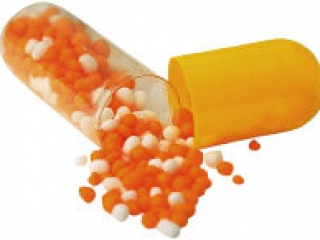
On 13 February, the Chinese Pharmacopoeia Commission (ChP) released a revised draft of General Chapter on Capsules (Vacant Capsules) (link in Chinese) for consultation, covering the common technical requirements for capsules used in oral pharmaceutical preparations.
IPEC China has kindly provided an English translation of the new document (which members can obtain via IPEC Europe’s Secretariat), with the introduction noting that the “preparation, in-process control and quality control of vacant capsules should comply with the relevant technical requirements of this general chapter.”
The document covers: general requirements; the classification of vacant capsules; nomenclature; preparation; applicability for dosage forms; stability; and storage, transportation and packaging.
The deadline for comments is 30 April, 2018, according to ChP.
Recommended reading

'Problem' excipients: be cautious when making clinical decisions on formulation
The Pharmaceutical Journal
We are writing in response to the article ‘How to identify and manage ‘problem’ excipients in medicines for children’, written by Sara Arthur and Anna Burgess and published in The Pharmaceutical Journal (2017;299(7903):42–45). The article helpfully raises awareness of the potential toxicity issues associated with ‘problem’ excipient use in children’s medicines and directs readers to age-based safety limits recommended by the European Medicines Agency (EMA).
Renewed interest in 'understudied' co-crystals to drive better meds, says scientist
In-PharmaTechnologist.com
Pharmaceutical co-crystals can improve the properties of active substances and ultimately make better medicines, says researcher.
Facility and excipient information shortfalls identified by FDA as among key contributors to ANDA review delays
IPQPubs.com
FDA’s Office of Generic Drugs (OGD) is cautioning ANDA sponsors to pay more attention to making sure that current information is provided on all of the facilities involved in the development, manufacturing, control testing and warehousing of APIs and finished dosage forms in both the Form 356h and application module 3.2.S.2.
Events Calendar

Here is a round-up of forthcoming events of interest to suppliers and users of excipients. Please let the IPEC Europe Secretariat know if we've missed one.
Making Pharmaceuticals
Coventry, UK - 24-25 April, 2018
More information here.
ExcipientFest Americas
San Juan, Puerto Rico - 1-2 May, 2018
More information here.
ExcipientFest Asia
Beijing, China - 19-20 July, 2018
More information here.
APV/IPEC Europe Excipient Conference 2018
Cologne, Germany - 19-19 September, 2018
More information here.
CPhI Worldwide
Madrid, Spain - 9-11 October, 2018
More information here.
|